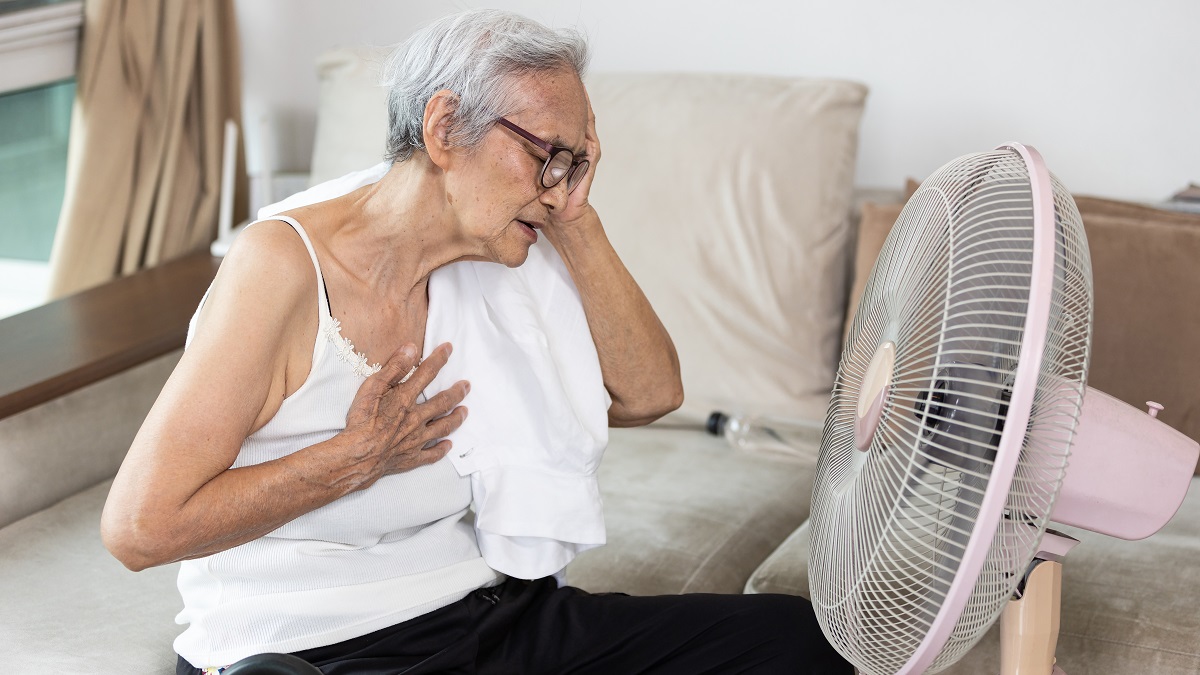In Australia summer is officially over but there’s no shortage of hot weather around the nation. For those who live with adequate cooling, that’s not a problem. But there are many Australians who don’t, including some of the most vulnerable – pensioners. Unsurprisingly, this heat is adversely affecting the health of some of these pensioners, a new survey reveals.
Research undertaken by the Australian Council of Social Services (ACOSS) indicates those struggling to keep their homes cool in summer are becoming seriously unwell from the heat. And the majority of those are Australians on low incomes and/or receiving income support.
In partnership with the First Nations Clean Energy Network, ACOSS surveyed over 1000 Australians nationwide. They found that 80 per cent of people were living in homes that are too hot in summer.
Of those, 61 per cent receive income support and 78 per cent are living in social housing. Private rentals accounted for another 66 per cent. The survey also found that 72 per cent of First Nations respondents struggled to cool their homes.
How is the heat affecting the health of the vulnerable?
Australians with chronic illness and/or living with disability were found to be the most affected by the heat. Those with inadequate cooling mechanisms displayed a variety of symptoms, including headaches, heat rash, breathing problems, dehydration, nausea and vomiting.
Nose bleeds, flare-ups in asthma, heart and vascular conditions, emphysema, diabetes and increasing anxiety and depression were also reported.
Pre-existing conditions or not, almost all respondents reported difficulty in sleeping at home on very hot nights or during heatwaves.
Barriers to keeping cool
As to why respondents were unable to access appropriate cooling, the factors varied but shared a common theme – affordability. Reasons cited included the cost of entry, cost of transport, mobility issues, caring duties and limited availability of cooler places.
Disturbingly, rising energy costs were a leading factor. Around 60 per cent of people surveyed said they were finding it increasingly difficult to pay their energy bills. A troubling 26 per cent of respondents were either already in, or facing, energy debt.
Narrowing the group to only those on income support, that proportion rises to an alarming 69 per cent.
As most of Australia cools down over the coming weeks, concerns about heat-induced health issues will naturally subside. Autumn will provide relief before concerns about the winter cold health risks set in.
But for those charged with ensuring Australians are healthy, the heat concerns should remain front of mind. While our understanding of the effects of climate change is still being developed, some trends are unfolding.
One of those trends is higher humidity levels in Australia’s coastal and southern regions. Humidity in and of itself is not necessarily a problem but, combined with heat, it creates serious risks.
The higher the humidity, the harder it is for us to sweat, and sweating is how we cool our bodies. The consequences of not being able to sweat properly include overheating and eventually heatstroke, a potentially life-threatening condition.
Summer’s almost over but the heat is on to find solutions
Autumn will bring cooler weather, but it will also bring with it the Federal Budget in May. ACOSS CEO Dr Cassandra Goldie says this presents an ideal opportunity to address the heat issues facing poorer Australians.
“In the May Budget, the government must invest further in energy efficiency, electrification and rooftop solar,” Dr Goldie said. This should be done across all low-income housing types, she believes. “[The government needs to] incentivise minimum energy efficiency rental standards, and raise the rate of JobSeeker and related payments.”
Will that happen? We will find out in May. Until then (if we can afford to) we’ll have to cool our heels.
Have you been adversely affected by the heat this summer? Is the cost of cooling your home a barrier for you? Let us know via the comments section below.
Also read: Disaster checklist: How to cope with the immediate effects of extreme weather
Health disclaimer: This article contains general information about health issues and is not advice. For health advice, consult your medical practitioner.


I live in FNQ and we mainly just use fans to keep us cool. We have a couple of air conditioned rooms but only use the aircon during periods of high heat and humidity and only during the day when it’s powered by our roof top solar.
Perhaps some elderly don’t know that fans use very little electricity so think they are saving by turning them off.
My 88 year old mother, who lives with me at the moment, runs the Air Con all day, sometimes from 9.00am to 6.00pm. She seems to need it more than I do. I’ve always assumed that this is a part of aging and that your body’s cooling system no longer works as efficiently. She uses a fan at night but sometimes uses the Air Con then too. I have solar panels so hopefully my bill won’t be too high.